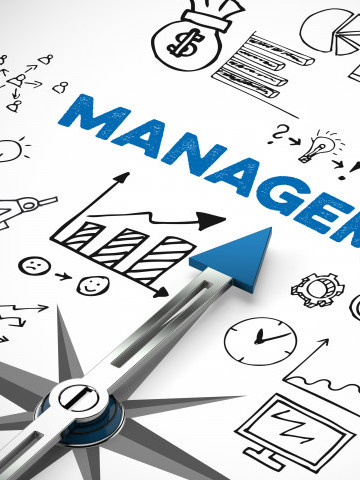
Enhance your expertise and leadership skills in the maritime sector
Goal
Enhance your expertise and leadership skills in the maritime sector!
The programme in Maritime Management has a special focus on building the expertise of persons who have a career at sea and want to continue working in land-based organizations – as experts or in leading positions in company management/maritime administration.
The studies include topics which are essential for these duties, like in-depth maritime economics, international treaties, risk management, chartering, environmental legislation, autonomous shipping, etc.
Content
The Master's degree programme in Maritime Management comprises 60 ECTS and the degree title is Master of Engineering or Master of Maritime Management, depending on your previous Bachelor's degree. These master’s degrees correspond to the level EQF 7 in the European Qualifications Framework for Higher Education.
Maritime Management is a Master’s degree programme for sea captains and marine engineers who want to deepen their managerial expertise in international marine shipping. Students will be able to use the knowledge obtained for development, problem solving and innovation within maritime management.
New curriculum from 2025!
Study structure of Master’s Degree Programme in Maritime Management (60 ECTS) consists of common advanced professional studies for both degrees (10 ECTS), degree specific advanced professional studies (15 ECTS), common elective studies (5 ECTS), and a Master’s thesis (30 ECTS).
Common advanced professional studies for both degrees (10 ECTS)
- Organization of Shipping and Shipping Business 5 ECTS
- Financing Shipping and Maritime Economics 5 ECTS
Degree Specific Advanced Professional Studies (15 ECTS)
Advanced Professional Studies in Maritime Management 15 ECTS
- Agreed Documents and International Maritime Treaty Obligations 5 ECTS
- Risk Management in Shipping - Marine Insurance law and contracts 5 ECTS
- Ship Broking and Law relating to Charterparties 5 ECTS
Advanced Professional Studies in Marine Engineering 15 ECTS
- Technical Management and Procurement Management 5 ECTS
- Environmental Law in Shipping and Sustainable Development Legislation 5 ECTS
- Classification and Accident Investigation 5 ECTS
Common elective Studies (5 ECTS)
- Arctic Shipping Management 5 ECTS
- Autonomous shipping and MASS Code compliance 5 ECTS
- Cruise Shipping Management 5 ECTS
- Renewable Energy Installation Management 5 ECTS
- Ship Sales-, New Vessel Construction and Conversions Management 5 ECTS
- Yachting Management 5 ECTS
Master’s thesis (30 ECTS)
The thesis work is usually realized as a research and development project related to working life. Constructing a thesis subject and the potential collaboration with an organization is at the responsibility of the student.
The elective study courses will respond to the in-depth education needs expressed by sea captains and marine engineers of working life and maritime commercial and industrial societies. Elective studies will be carried out in close connection with the professional maritime society during the second study year. In the beginning of the studies each student selects two elective courses out of the six, and places them in order of preference. Minimum two courses with highest number of selections will be implemented immediately after the degree specific advanced professional studies
Our working methods within the program ensure that you practice your project management and leadership skills and improve your professional communication skills in English.
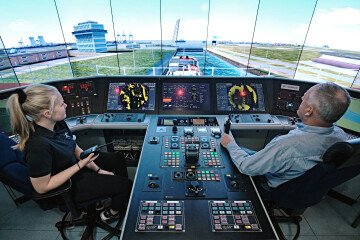
Master of Engineering / Master of Maritime Management, Maritime Management
- Field of study: Technology and Seafaring
- Extent: 2 years 60 Credits
- Form: Master's Degree - Part-time studies
- Location: Turku
- Application period: 7–21.1.2026
Previous Knowledge
You can apply for Master of Engineering/Master of Maritime Management, Maritime Management if you have completed
- An appropriate Bachelor's degree in a related field for this programme can be Bachelor of Maritime Management, Maritime Management, Captain or Bachelor of Engineering, Maritime Technology or another appropriate Bachelor’s/Master’s degree completed in the field of seafaring.
- Minimum 24 months of work in a related field after completion of Bachelor's degree
Structure of Studies
The studies are arranged on site and/or online with the lecture materials, as well as the assignments to be completed online, in the system Moodle or Webex. It is recommended but not mandatory for you during your studies to attend contact lectures in person at campus. The lectures that take place on campus will be recorded, but this is up to the teachers/guest lecturers to decide on individual basis. We meet on average two days a month either on site or online. The schedule of contact lecture days (onsite and/or through Webex) will be announced before beginning of the studies.
It is mandatory to visit Finland to show the student Admission the original certificates used in the application. Moving to Finland is not necessary for the studies. Moreover, such a thing would be something between Finnish Immigrations Service and the student.
Sustainability and United Nations 17 Sustainable Development Goals, are taken into consideration in the program and moreover many thesises have incorporated sustainability. Especially numbers 8, 13 and naturally 14 are taken into consideration.
News and Events

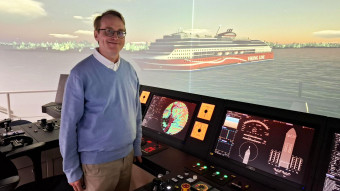

Scholarships and Tuition Fees
The studies are free for EU/EEA citizens. Tuition fee for non-EU/EEA students is set to 12 000 euro for the academic year 2025-2026.
Tuition fee-paying (non EU/EEA) students can apply for a scholarship. Read more about tuition fees and scholarships on the Admissions Services pages.

Follow us to keep up to date with news and what is happening at Novia UAS.

Degree Project
The master's thesis is a demanding development project or research work which combines theory, practice, and the creation of new knowledge. The thesis subject and aim are based on the requirements and needs of the maritime field.
The theme of the thesis (30 ECTS) must be related to the field(s) of study, preferably agreed upon with an industry representative. Thus, the thesis works as a bridge between study and work, giving students the opportunity to apply theoretical thinking to practical problems.
Additionally, alternatives to a thesis can be, for example:
- reports (e.g. investigations, surveys, analyses and/or evaluations)
- development work (e.g. development of working methods or activities)
- product development (e.g. a prototype or a model)
- a plan, a product or an artistic work (e.g. an event, a collection, an artistic production, a course, design of material such as guides/manuals or handbooks)
- a portfolio
Constructing a thesis subject and the potential collaboration with an organisation is at the responsibility of the student.
Continuing Education Opportunities
With a Master’s degree, students are able to continue to university post-graduate (licentiate/doctoral) studies, however universities may at their own discretion have specific admission requirements for post-graduate studies that must be met in addition to a completed Master’s degree.
Career Opportunities
After completing the programme, you will be qualified to pursue a wide range of career opportunities. Graduates should be better suited for work within shipping companies, maritime authorities, ports, and a wide range of related organisations such as transport companies, maritime insurance companies, marine technology providers, education, and research. These fields have a constant need for employees, and the fast development within the maritime industry brings more opportunities with it.
Internationalisation
Given that the language of tuition is English, the possibilities for working on an international scale, both during and after the studies, are good. For example, the thesis project is suitable to conduct abroad or in an international business.
Language of Instruction
The studies are conducted in English.
Collaboration With Other Actors
Novia UAS and Aboa Mare, the unit for maritime education, cooperate with several universities both nationally and internationally.
Cooperation takes place within RDI projects, student and/or staff exchanges, as well as within continuing education to name a few areas. International maritime actors visit Aboa Mare on a regular basis.
Aboa Mare’s location, in the same building as many representatives of maritime authorities, provides possibilities for collaboration with them.
Continuing Education Opportunities
With a master’s degree, students are able to continue on to university post-graduate (licentiate/doctoral) studies. However, universities may, at their own discretion, have specific admission requirements for post-graduate studies that must be met in addition to a completed master’s degree.
Frequently Asked Questions
How do I apply?
Apply online at www.studyinfo.fi
Read more about the application process.
Webinar for Applicants to Master's Degree Programmes
Student Story
Career Opportunities
After completing the programme, you will be qualified to pursue a wide range of career opportunities. Graduates should be better suited for work within shipping companies, maritime authorities, ports, and a wide range of related organisations such as transport companies, maritime insurance companies, marine technology providers, education, and research. These fields have a constant need for employees, and the fast development within the maritime industry brings more opportunities with it.
Alumni Story
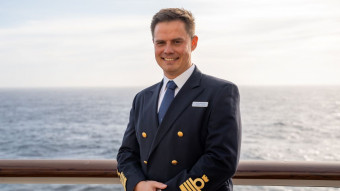
“My Bachelor’s degree created a foundation for my professional career that is needed to obtain the certificates of competency. The Master’s degree provided me with more in-depth knowledge of the maritime cluster, especially its economic aspects”.

Thomas Finne
Senior Lecturer
Related News
Read more related news




“My Bachelor’s degree created a foundation for my professional career that is needed to obtain the certificates of competency. The Master’s degree provided me with more in-depth knowledge of the maritime cluster, especially its economic aspects”.
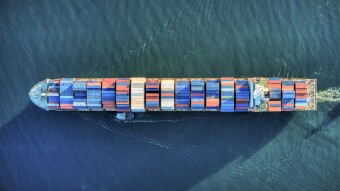
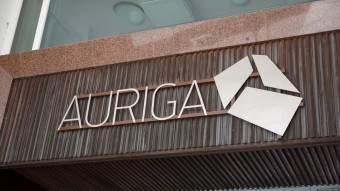

Meet Us
Novia University of Applied Sciences participates in several different student fairs and events. Our own students who are trained PR tutors visit secondary education schools across Finland. If you want to book a visit to your school or high school please contact Julia Mård, julia.mard@novia.fi and we will help you!
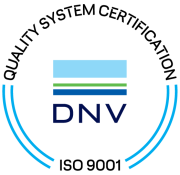
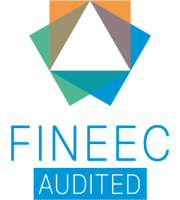
Novia UAS quality management is certified according to the ISO 9001 quality standard. This means that every year our entire business is audited by DNV. This is to ensure the best quality and constant development of Novia UAS.